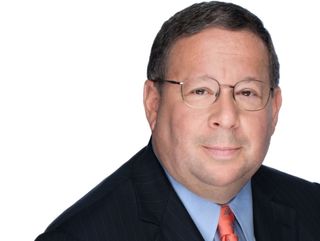NECTA 2016: Coping With Obama Administration 'Attacks' on Cable

Newport, R.I. – The set-top box competition proposal at the FCC weighed heavily on the opening of the New England Cable Telecommunications Association convention here, with one speaker calling it “an existential threat to the cable industry” and another saying “the loser in this [FCC] approach is the American consumer.”
The speaker seeing the existential threat, Charles River Associates senior consultant Stanley Besen, called the plan by Federal Communications Commission chairman Tom Wheeler “bad economics” that could “sever” the business relationships between programmers and video distributors.
He said the FCC should embrace the cable industry’s proposal to let programmers get integrated into pay-TV systems via apps and then “declare victory and go home.” But the agency seems intent on changing the way programming is delivered, he said.
The second speaker, Comcast senior executive vice president David Cohen, agreed with Besen that Wheeler’s proposal – to enable over-the-top providers to gain access to set-top data – could “blow up the cable content ecosystem.” If so, he said, that “could easily result in lesser quality of programming, higher prices and a significantly worse consumer experience.”
The Comcast top policy executive (who said this was his 14th year in the NECTA opening panel) cited encouragement cable has received from Verizon and Google to the apps-based “ditch the box” proposal. He also said “consumers don’t view this as a burning issue,” having not weighed in heavily with comments and with more comments opposing Wheeler’s plan than supporting it.
Beyond the set-top proceeding there also are big policy concerns for non-video parts of the business, which are growing faster than video, he said: the broadband data privacy and special-access proceedings under way at the FCC that target high-speed data and business services.
Cohen said the proposals were “ideologically based attacks” by the Obama administration that pose “grave risks” to the cable industry and “something we need to pay attention to for the next six months.”
Multichannel Newsletter
The smarter way to stay on top of the multichannel video marketplace. Sign up below.
Atlantic Broadband CEO Richard Shea agreed the pending FCC actions – which might get bogged down in an election year – was worrisome because of the threat to the important business services segment for the first time. “For either one of those to come into full force would have a very chilling effect for us,” he said.
Later, Cohen said with the election of a new president, administration and FCC in 2016, it "needs to be a huge priority for our entire industry, to press the re-start button and begin to rebuild a constructive relationship between our federal government and our industry."
Asked by the moderator, CNBC anchor Ron Insana, about the surprise Pokemon Go phenomenon, Cohen said it was a good reminder that millennials are key to driving the business and of “the importance of innovation.” To the latter point, Comcast is working hard on immersive virtual reality applications for viewing the Olympics, he said. That won’t attract a significant audience in 2016 but will grow to becom an important application at the 2020 Games, he said.
“We have to be innovating the next things that will make people love and want our products and services, even though we have no idea what they are today.”
Kent has been a journalist, writer and editor at Multichannel News since 1994 and with Broadcasting+Cable since 2010. He is a good point of contact for anything editorial at the publications and for Nexttv.com. Before joining Multichannel News he had been a newspaper reporter with publications including The Washington Times, The Poughkeepsie (N.Y.) Journal and North County News.

